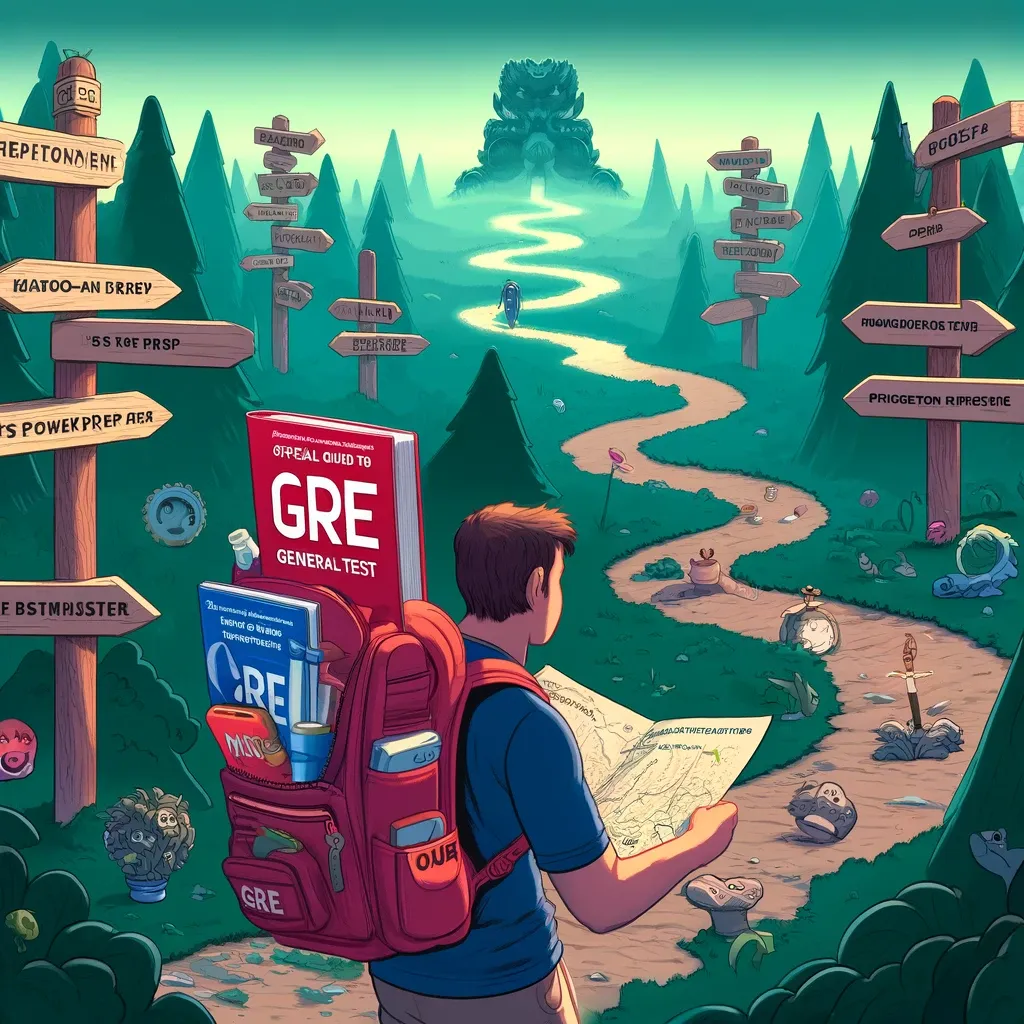What is common in a treasure hunt and GRE preparation?
-

Embarking on your GRE preparation journey can be much like setting off on an adventure. Imagine having a backpack filled with the most reliable maps and tools—like the "Official Guide to the GRE General Test," navigating through the challenging terrains with Magoosh's online videos, or solving puzzles with Manhattan Prep's strategy guides. Each of these resources, along with others such as ETS PowerPrep Online, Princeton Review, and Kaplan GRE Prep, serve as your compass, guiding you towards your destination of GRE success.
However, merely possessing these tools isn't enough. Consider the GRE as a timed treasure hunt, where the pressure mounts not just from finding the treasure but doing so within a limited time. Picture yourself in a dense forest (the GRE test), where you might spend too much time wandering around the same area (dwelling too long on early questions) or taking a wrong turn (making mistakes). Without a clear strategy or map (test-taking strategy), finding the treasure (achieving a high score) can seem like a daunting task.
A typical misstep in this adventure is trying to run and read the map at the same time (focusing on both accuracy and speed), which often leads to trips and falls. Studies have shown that our brains aren't wired to multitask efficiently, especially under pressure.
To navigate this challenge, I suggest starting your journey by familiarizing yourself with the terrain (focusing on accuracy). This might mean practicing how to quickly decipher ancient runes (learning efficient techniques for answering different question types) or ensuring your compass is always accurate (developing methods to verify your answers quickly, such as checking for extreme values or applying logical reasoning to eliminate wrong answers).
Once you're confident in your ability to interpret the map correctly (achieve high accuracy), it's time to pick up the pace (incorporate a time budget for each question). This phase is about learning to sprint between landmarks efficiently (enhancing speed and improving time management) without losing your way. It involves tactics like focusing on one landmark at a time (tackling one question at a time) and avoiding unnecessary detours (steering clear of multitasking).
By breaking down your preparation into these two focused phases, you transform your journey into a series of manageable steps. Many adventurers before you have followed this path, finding not just the treasure but also the thrill of overcoming the challenges along the way. This strategic approach to your GRE preparation is not just about reaching your goal but enjoying the journey as you learn and grow.
